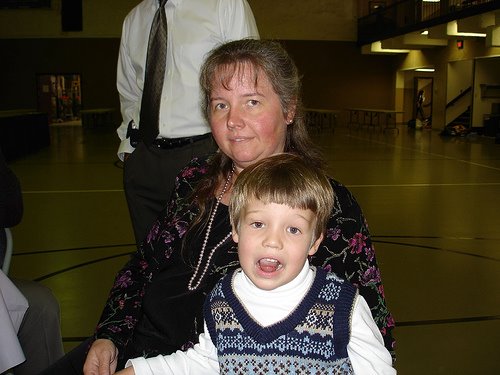In which we look for the fun side of The Dream
I recently read a comment by a long-term member of the SCA that he liked to share the "fun side of The Dream" with folks in the SCA. What does this mean? Considering the source, I am aware that my "fun side" is quite different from his; mine includes neither togas nor wheels of Jell-O. There are no bunny-fur bikinis in my Dream, no poker parties, barbeque, potatoes or chocolate. His context seemed to imply that "period" is not "fun". This attudude reinforces the already high barrier in the movement toward a more authentic environment.
The SCA professes to require activities that create a particular atmosphere. Most people in the SCA would agree that a period camp contributes to a period environment, and while a Wheel of Jell-O doesn't necessarily, well, it's "fun", and we are here to have "fun" after all. It's not that anyone believes that non-period things belong, it's that people believe that they don't necessarily not belong.
As long as the Big Tent encompasses such a broad definition of "fun", no one can - or should - lay claim to knowing or promoting the "fun side of The Dream". To qualify The Dream in such a way places "period" at the opposite end of the spectrum from "fun". We can say (and demonstrate) that we are having fun, and to invite others to have fun with us. I consider that I have found a "fun side of The Dream"; when I am dressed as Lijsbet and working in her kitchen, I have a small idea of what she felt like, what she knew, and how she lived. How would that happen with chocolate for dessert, or at a halfla?
Inside the Big Tent is an atmosphere of political correctness, in which members are expected to be non-critical in the name of diversity. We are left with an organization that more closely parallels the mores of the forty years in which it has been in existence than that of the era it professes to study.
The Dream initiated the SCA. The first event was a party to protest the modern age. In the seventies, "decadence" parties reflected the licentiousness of the decade. By the eighties, we'd all become a lot more cautious, and by the time I joined in 1987, there were certain leanings toward actual research and learning about the eras upon which we'd based our theme party. By the nineties, a handful of us had gotten serious; people with a genuine interest in history went in different directions. Some left the SCA to establish reputations in the field of research or to join with living history groups. Plenty stayed behind to promote authenticity within the SCA. What started out as a costume party has changed into what we know today.
My Dream is the the SCA will discard the dichotomy between "period" and "fun". Including non-period things teaches nothing; rather it is a barrier to understanding. Perhaps authenticists are trying to change the game, and maybe the game doesn't want to change. It seems that change is inevitable, given the age of the Society - we all have to grow up someday.
The SCA professes to require activities that create a particular atmosphere. Most people in the SCA would agree that a period camp contributes to a period environment, and while a Wheel of Jell-O doesn't necessarily, well, it's "fun", and we are here to have "fun" after all. It's not that anyone believes that non-period things belong, it's that people believe that they don't necessarily not belong.
As long as the Big Tent encompasses such a broad definition of "fun", no one can - or should - lay claim to knowing or promoting the "fun side of The Dream". To qualify The Dream in such a way places "period" at the opposite end of the spectrum from "fun". We can say (and demonstrate) that we are having fun, and to invite others to have fun with us. I consider that I have found a "fun side of The Dream"; when I am dressed as Lijsbet and working in her kitchen, I have a small idea of what she felt like, what she knew, and how she lived. How would that happen with chocolate for dessert, or at a halfla?
Inside the Big Tent is an atmosphere of political correctness, in which members are expected to be non-critical in the name of diversity. We are left with an organization that more closely parallels the mores of the forty years in which it has been in existence than that of the era it professes to study.
The Dream initiated the SCA. The first event was a party to protest the modern age. In the seventies, "decadence" parties reflected the licentiousness of the decade. By the eighties, we'd all become a lot more cautious, and by the time I joined in 1987, there were certain leanings toward actual research and learning about the eras upon which we'd based our theme party. By the nineties, a handful of us had gotten serious; people with a genuine interest in history went in different directions. Some left the SCA to establish reputations in the field of research or to join with living history groups. Plenty stayed behind to promote authenticity within the SCA. What started out as a costume party has changed into what we know today.
My Dream is the the SCA will discard the dichotomy between "period" and "fun". Including non-period things teaches nothing; rather it is a barrier to understanding. Perhaps authenticists are trying to change the game, and maybe the game doesn't want to change. It seems that change is inevitable, given the age of the Society - we all have to grow up someday.


0 Comments:
Post a Comment
<< Home